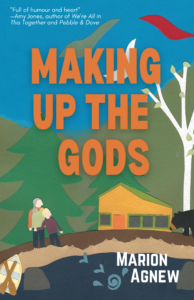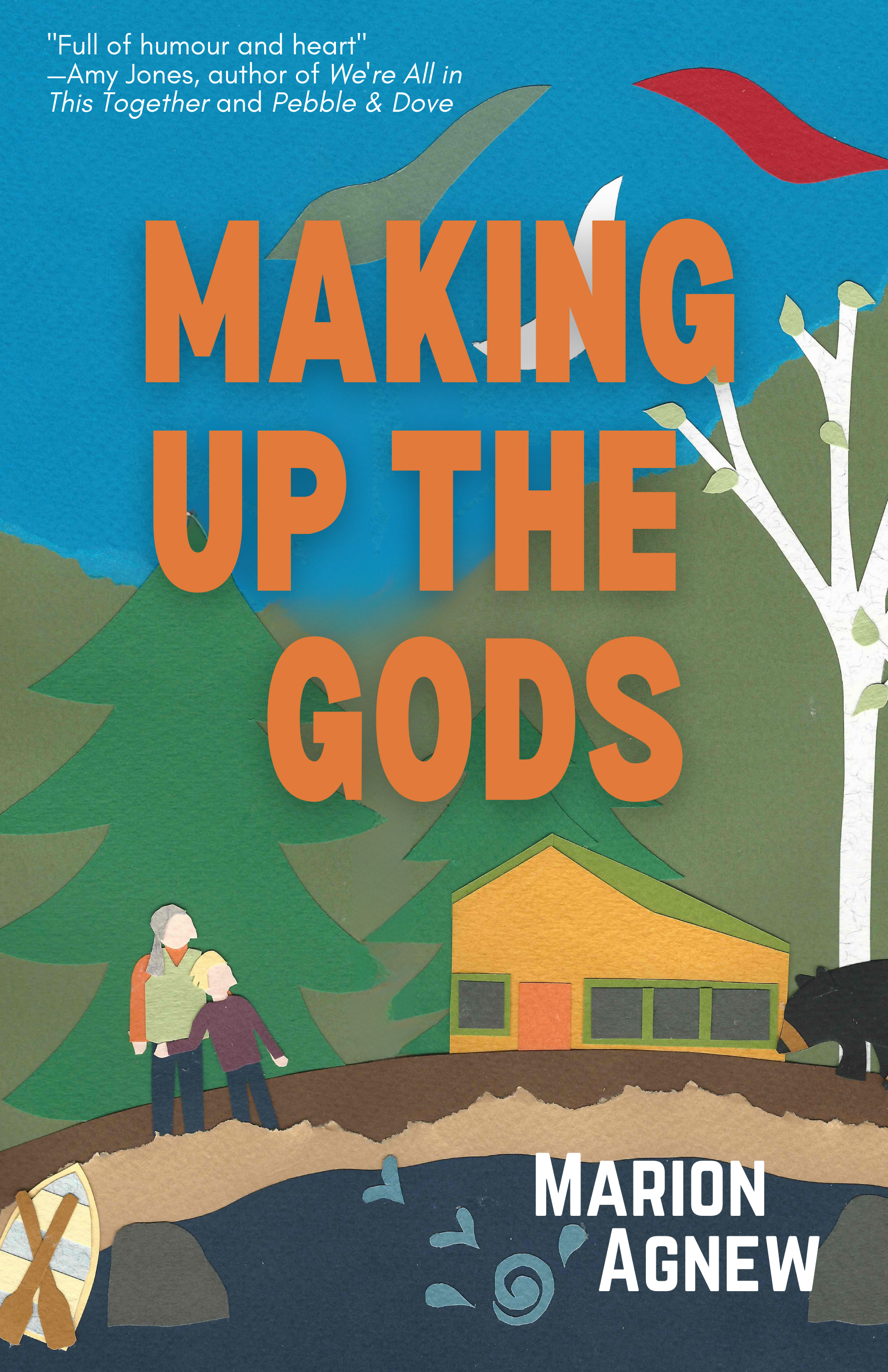
Making Up the Gods
by Marion Agnew
Latitude 46 Publishing
376 pages
$24
Agnew weaves together in a tender fashion her three narrators’ shared experiences—all people who share separate loneliness, grief, and a childhood with only one parent.
Agnew’s writing is simple yet elegant and highlights the beauty of Thunder Bay, Ontario, and Simone’s cottage camp by the lake: ”The bare branches of the birches behind me, beyond the rocks and sand of the beach, rustled softly on another early-May breath.” Never melodramatic, or overwritten, the characters and various relationships with community, relationships, and grief come to life. None of the characters are treated as tropes, and neither is grief itself—it is a child dutifully writing. A fourth of the way through Marion Agnew’s debut novel Making Up the Gods, a young boy, dealing with the loss of a father and brother, and an older widow puzzle over what kind of gods one could create and why. Gods of comfort, gods made from seasons or patterns, gods of sickness, and trickster gods. Agnew also asks; what about ghosts? What kind of ghosts will we summon? And how can they both enhance and mute our engagement with the living?
Simone, the linchpin of Agnew’s three stories, desires to simply live in peace in her family’s cottage in Thunder Bay after the death of her husband but is haunted—quite literally—by her family’s ghosts. Her mother sits at the kitchen table in red lipstick, her grandfather Jackson comes in smelling of vanilla, and her husband is a gentle warm breeze that she fears of losing. When Simone is approached by nine-year-old Chen’s mother to watch the child while she takes a vacation, Simone initially balks for multiple reasons, including the fear another presence will scare away her husband’s ghost. The arrival of Martin, a man claiming to be her cousin—in reality, a construction worker who does odd jobs, and has been asked by a “Mr. Smith” to buy her property—throws another wrench at her isolated life. Both tempted by the promise of family and connection and disconcerted by it, Simone wrestles with whether to be open to these new connections.
Eventually, Simone will have to decide whether to stay with her grief and her ghosts (both those wanted, and those hateful) or join the living. Agnew offers readers a look at living that offers us a way to conceptualize moving through heartbreak and loneliness—whether we have experienced grief or not, Making Up the Gods says there is a way to live.














